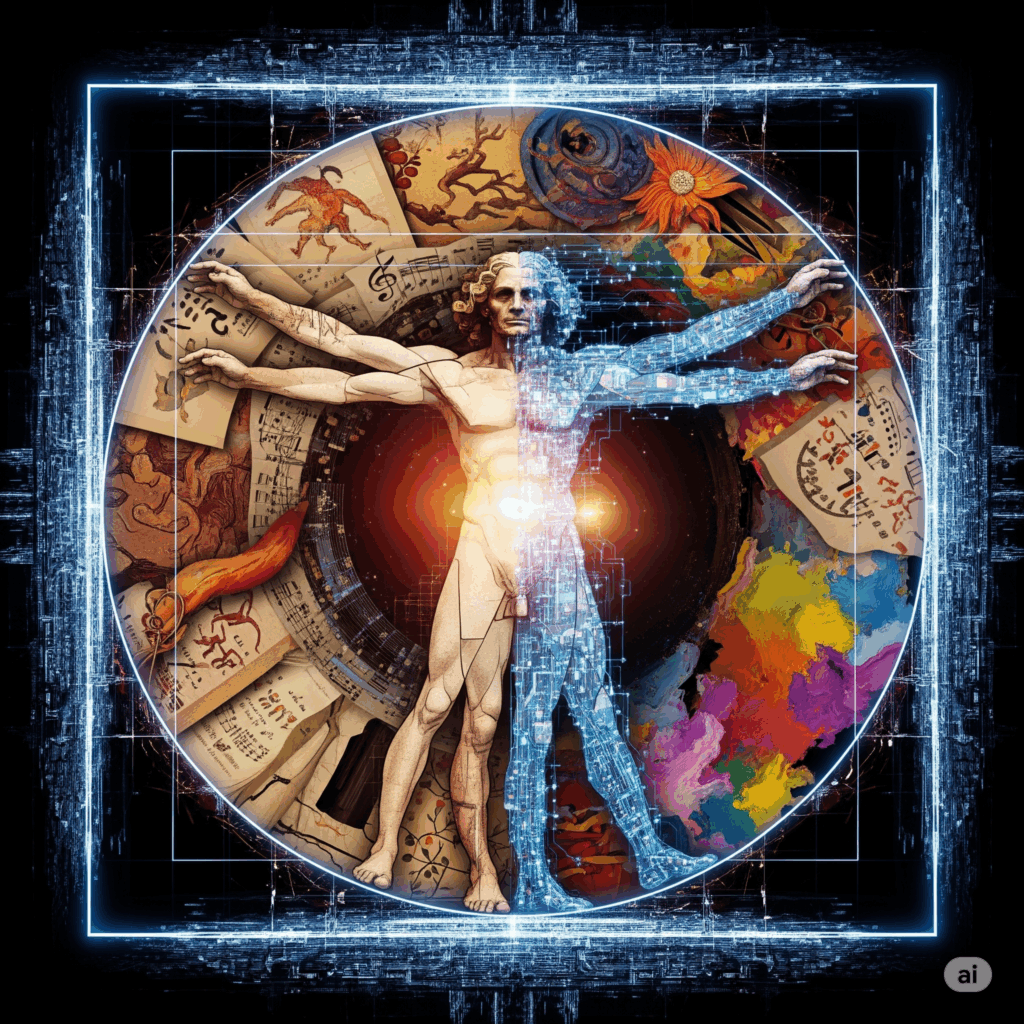
During a recent strategic thinking, I used AI to generate dozens of creative concepts in just ten minutes, each one logical and data-driven. I was personally in awe of this incredible efficiency, believing I had once again mastered a new tool for productivity. Yet, in that moment, a more profound thought struck me: I thought I was merely steering a tool, but in reality, I might be at the epicenter of a revolution far more radical than any industrial one—a cultural revolution striking at the very foundations of our civilization.
We are all standing together on the threshold of a great historical moment. The wave set in motion by AI is reshaping how we create, disseminate, and experience culture, from the inside out.
The Reshaping of the Individual & Mind: From Tool to Cognitive Partner
First, this revolution impacts our innermost world—our minds. AI is not merely a tool upgrade; it is the rise of “Cognitive Agency.”
When we skillfully employ “Prompt Engineering” to converse with AI, we are, in fact, learning a new art of human-machine communication, one that demands we think and question in a more structured and logical way. As we grow accustomed to AI polishing our emails and drafting our reports, we are also inadvertently “outsourcing” parts of our cognitive functions. This “reverse-shaping” is subtle yet powerful: our minds may become more modular and results-oriented to adapt to our interactions with AI. We must honestly ask ourselves: as machines begin to assist our thinking, how do we protect the sacred flame of independent thought?
The Reinvention of Industry & Culture: From Mass Reproduction to Mechanical Originality
This individual-level transformation is rapidly scaling up to entire cultural industries, leading us from an era of “mass reproduction” into an age of “Mechanical Originality.”
AI is becoming the new cultural engine. It can compose symphonies, create paintings, and generate ad copy and game scripts. This brings unprecedented opportunities, allowing dormant traditional cultures to be revitalized. We can use AI to restore ancient, damaged texts and allow historical figures to “speak” in the virtual world, presenting the charm of ancient artifacts and rituals to the world in entirely new ways.
However, on the other side of opportunity lies a hidden risk. When culture can be mass-produced by algorithms, we face the peril of “cultural homogenization.” A model trained on a specific dataset will inevitably have a limited “worldview” and “aesthetic.” If we are not vigilant, our precious and diverse cultural nuances could be flattened by the efficient tide of a “global aesthetic average.”
The Reordering of Society & Power: The Dawn of Liberation and the Shadow of Monopoly
Perhaps all the changes mentioned above are merely the tip of the iceberg. The deepest and most acute tension of this revolution lies beneath the surface—it is the fierce collision between the astonishing liberating potential of technology and the formidable reality of its monopoly by capital.
On one hand, AI is an unprecedented tool for empowerment. A small startup can leverage open-source models to compete with industry giants; an independent artist can use AI tools to achieve grand creations that once required an entire team. This is undoubtedly the dawn of liberating individual creativity.
On the other hand, we must clearly see that the most powerful foundational models and the most massive data resources are increasingly concentrated in the hands of a few tech titans. This is creating a new kind of power barrier, one that is difficult to surmount. When “intelligence” itself becomes a core means of production that can be monopolized, AI can shift from a tool of liberation to a machine that exacerbates social inequality and creates a new “digital divide.” The real challenge we face is not a battle of human versus machine, but a struggle between human liberation and the logic of capital.
How Should We Act? A Path to the New Civilization
Faced with this inevitable and profound cultural shift, we are not powerless observers. The future depends on the choices and actions we take today.
- For business leaders, true vision extends beyond simple cost-cutting and efficiency gains. We must invest in developing our employees’ “human-AI collaboration” skills and establish “Responsible AI Governance” frameworks, embedding ethical considerations into every stage of technological application. Our goal should be to create a work environment where AI augments humans, rather than replaces them.
- For tech professionals and creators, we are in an era that requires us to redefine our value. Algorithms can imitate style, but they cannot possess genuine life experience or unique values. Our core competencies will increasingly lie in the wisdom to ask the right questions, the vision for cross-disciplinary integration, profound empathy, and independent aesthetic judgment.
- For every one of us, it is vital to maintain an open mind for learning while preserving a sharp, critical mindset. We need to proactively understand algorithms, discern the truthfulness of information, and actively participate in the public discourse on AI ethics, data privacy, and algorithmic fairness.
Ultimately, this great cultural revolution will transcend the category of a tool to become a catalyst for a civilizational leap. The train of technology has already left the station, but its destination depends on the values we embed in its tracks. Only by consistently placing human value, human dignity, and human liberation at the absolute core can we ensure that this profound transformation leads to a new civilization where creativity, in all its forms, can truly blossom.

